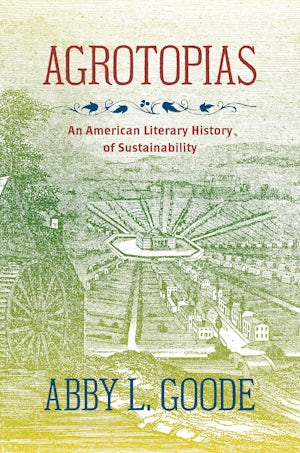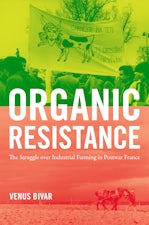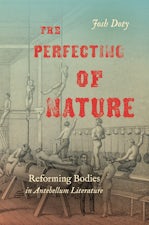Agrotopias
An American Literary History of Sustainability
By Abby L. Goode
294 pp., 6.125 x 9.25, 2 halftones
-
Paperback ISBN: 978-1-4696-6982-3
Published: September 2022 -
Hardcover ISBN: 978-1-4696-6981-6
Published: September 2022 -
E-book EPUB ISBN: 978-1-4696-6983-0
Published: August 2022 -
E-book PDF ISBN: 979-8-8908-6133-7
Published: August 2022
Buy this Book
- Paperback $34.95
- Hardcover $99.00
- E-Book $27.99
For Professors:
Free E-Exam Copies
Showing how ideas about race and reproduction were central to early sustainability thinking, Goode unearths an alternative environmental archive that ranges from gothic novels to Black nationalist manifestos, from Waco, Texas, to the West Indies, from city tenements to White House kitchen gardens. Exposing the eugenic foundations of some of our most well-regarded environmental traditions, this book compels us to reexamine the benevolence of American environmental thought.
About the Author
Abby L. Goode is assistant professor of English at Plymouth State University.
For more information about Abby L. Goode, visit
the
Author
Page.
Reviews
“A valuable contribution to understanding the history of American environmental thought through its literary output during the 19th and early 20th centuries. . . . Recommended.”—CHOICE
“A stellar argument . . . an ambitious, important intervention in sustainability rhetoric over a 300-year period.”—ISLE: Interdisciplinary Studies in Literature and Environment
“Compelling and astute. . . . [A] well-written, deftly argued, and much needed reconsideration of the development of nineteenth-century American agricultural and environmental imagination.”—New England Quarterly
“An important addition to a broader wave of scholarship . . . [that] provide[s] readers with an understanding of how the material, political, and cultural components of American agrarian thought took hold in nineteenth-century society.”—H-Environment
“Rich and compelling. . . . [A]n essential intervention into the history of US environmental thought, one that insists we reconsider the simple progressive goodness typically accorded to agrarianism and its legacies.”—American Literary History
“In this important, well-executed study . . . Goode has chosen a fascinating combination of literary works to consider. . . . In her consistently striking readings of these texts, Goode traces the nuanced yet potent ways in which sustainability rhetoric (and its whole conceptual scaffolding) evolved from the Revolutionary Era through the Progressive Era.”—Early American Literature



